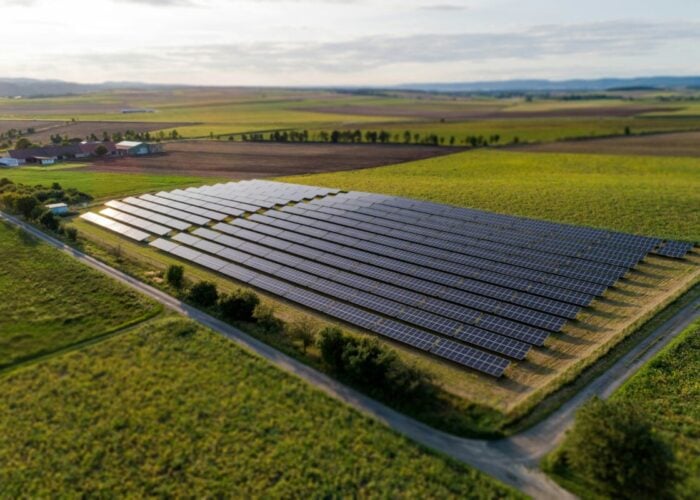Lancaster, California, US, has received the Energy Globe Award to recognize the installation of its many alternative energy projects. The city’s “Home of the Future” project, conducted in conjunction with KB Home and China-based BYD, was the focus as a public-private partnership of international proportions.
“We're honoured to accept this prestigious international award.” said Mayor R. Rex Parris. “Yet we couldn't have done it without our partners. It is our successful public-private partnerships with companies such as KB Home, BYD, and SolarCity that have multiplied our efforts, increased our efficiency, and helped us achieve these accomplishments in a very short period of time.”
Try Premium for just $1
- Full premium access for the first month at only $1
- Converts to an annual rate after 30 days unless cancelled
- Cancel anytime during the trial period
Premium Benefits
- Expert industry analysis and interviews
- Digital access to PV Tech Power journal
- Exclusive event discounts
Or get the full Premium subscription right away
Or continue reading this article for free
“BYD was impressed with Mayor Parris and his team from our first meetings – they truly are committed to economic and environmental recovery and understand what it takes to get business done. They have been a pleasure to work with and this award is truly earned by their efforts to make Lancaster the alternative energy capital for the state and now the world. We are proud to do business with this team,” stated Stella Li, senior vice president of BYD.
At the recent Intersolar Europe in Munich last week, BYD showcased its PV TOP.5 technology, which stands for POP, TJB, ABC, DLC and NES. According to the company, POP technology is the best balance between bus-bar shadow and resistance, which increase the power output by more than 3%.
BYD states that ABC technology can increase the power output and reduce the extra cost as a result of better heat dissipation for diode and decreased physical resistance. With aluminium backsheet and diamond-like coating glass, the module power output can be increased by additional 4%. NES technology (narrow, electroplating and selective emission) can raise the average conversion efficiency up to 17.4%. BYD insists the new technology has been highly praised by numerous customers and audiences.






